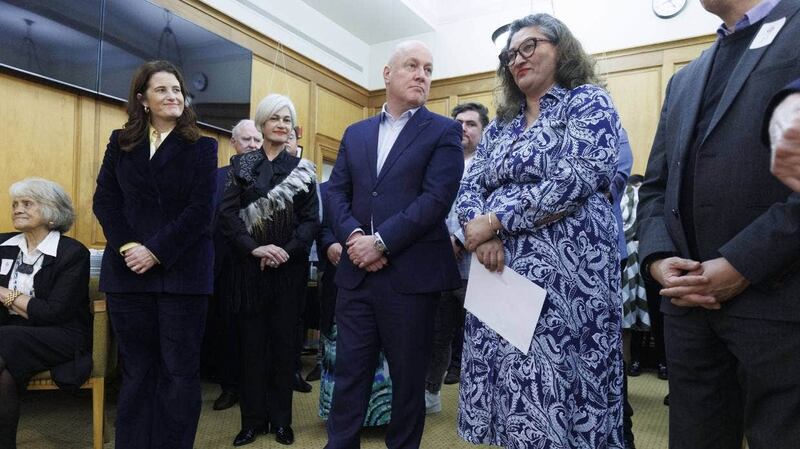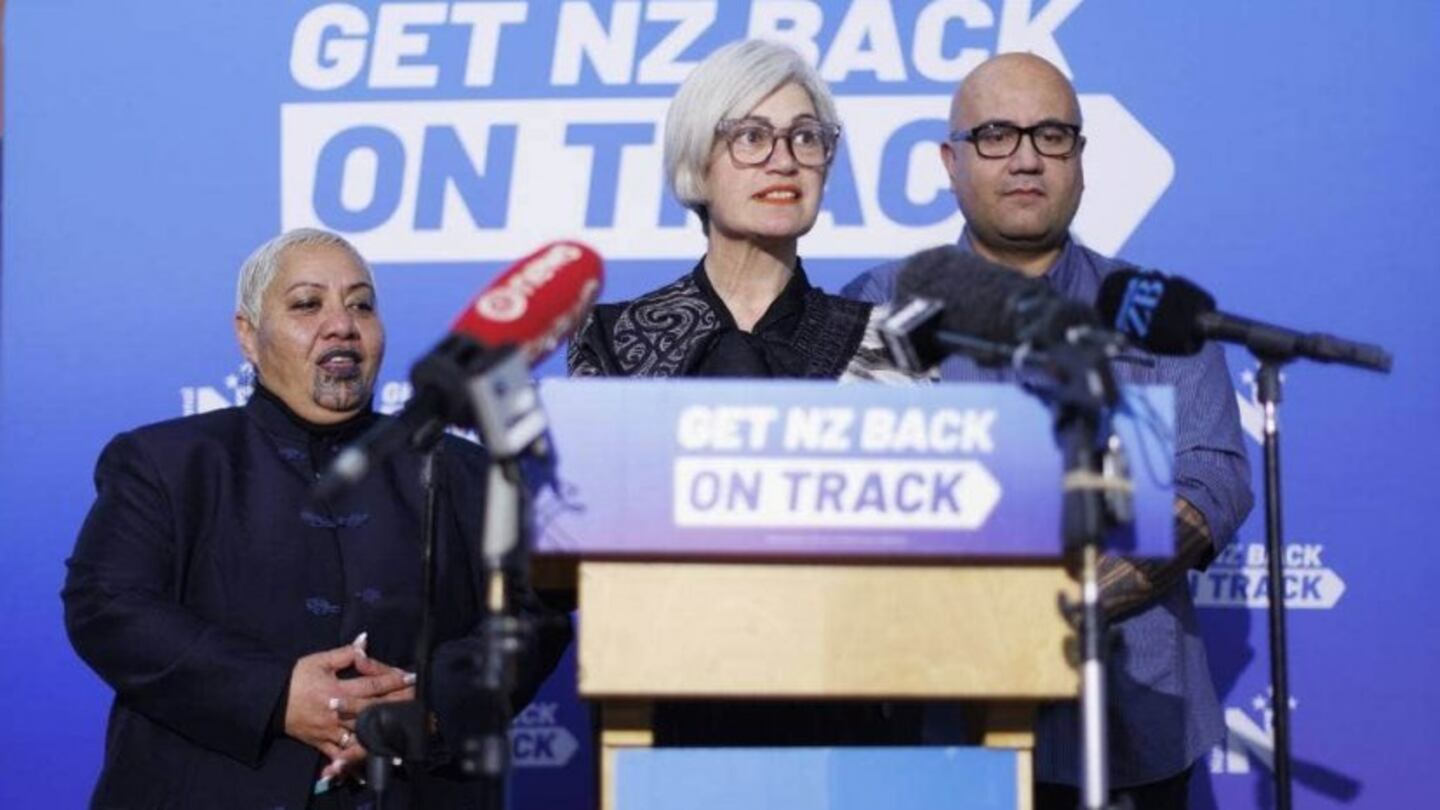Harete Hipango says there has been a “distorted stereotyping” of her party and its relationship with Māori. Robert Kitchin / Stuff
By Bridie Witton, Stuff
National Party leader Christopher Luxon has launched a fresh effort to mobilise Māori voters while making a pitch of inclusiveness at an event for the party’s two Māori seat candidates, list MP Harete Hipango and newcomer Hinurewa te Hau.
Speakers referenced the party’s Māori legacy, including Sir Apirana Ngata, widely held to be Māoridom's greatest statesman, at the event which acknowledged the party was contesting Māori seats for the first time in more than two decades.
Luxon spoke of his party’s credentials in uplifting Māori, referencing non-Māori MPs including Duncan McIntyre, a former deputy prime minister who opposed the alienation of Māori from their land, and former prime minister Jim Bolger, who presided over Treaty of Waitangi settlements.
”We believe that actually there is a proud legacy of ... Māori doing well with National governments," he said. “I want to be clear that we're going to deliver for Māori, and we are going to deliver for non-Māori.”
Luxon said it was a “very proud day” to have two Māori women representing the party in two Māori seats. He has repeatedly promised his party would increase the diversity of its caucus since he took over the leadership in December 2021.

National Party deputy leader Nicola Willis, Harete Hipango, Chris Luxon, and Hinurewa te Hau launched the two Māori seats with an event at Parliament. Robert Kitchin / Stuff
“This is a really proud day for us because its two wāhine toa ...they are both incredibly strong advocates for Māori ... and they’re going to work incredibly hard to bring the cause of the national party to the electorates that they want to represent.”
Luxon has repeatedly sought to modernise his party, and change its direction on Māori issues, after Judith Collins stoked fears of Māori separatism. Māori self-determination remains a key political issue.
But National and ACT Party MPs this week faced accusations of being racist over its stance on the 'Equity Adjuster' tool – an algorithm introduced to rank people who have been waiting for surgery for more than two years, which factors in a person’s ethnicity.
It's been used in some hospitals in Auckland and Northland, and is backed by the professional bodies including The Royal Australasian College of Surgeons. But National and ACT have said it is unfair.
Hipango, who will stand in Te Tai Hauāuru and is the only Māori woman in caucus, promised her party valued Māori votes. She refuted the idea her party did not have a good reputation of working with Māori, and listed examples where it had done so including the Māori Women's Welfare league, Maori wardens, and supporting Māori broadcasting.
“I think we need to put that myth aside,” she said. “Hinurewa and I are here to present as Māori woman leaders within the National Party to actually place the reality back into context. [It] has been a distorted stereotyping of the National Party.”
Te Hau, who will stand in Tāmaki Makaurau, said her party was becoming more representative of the communities it represents.



